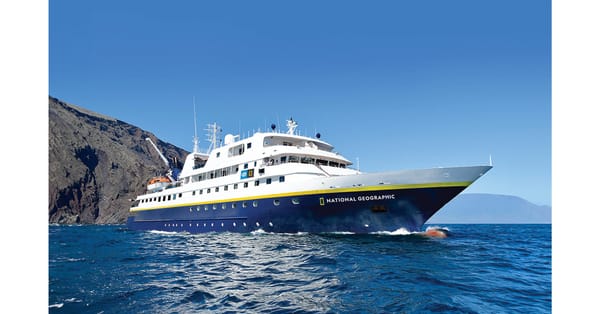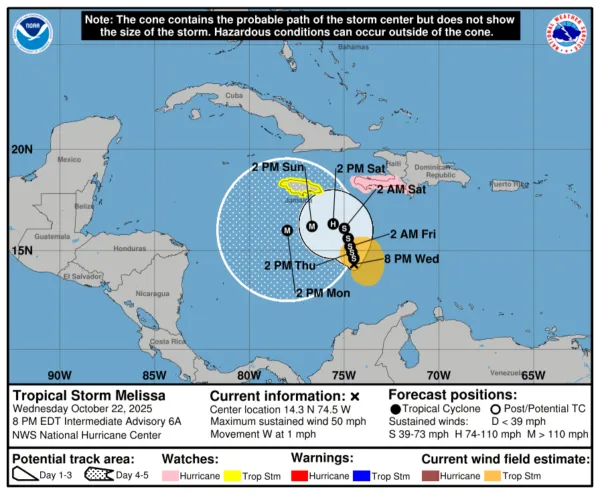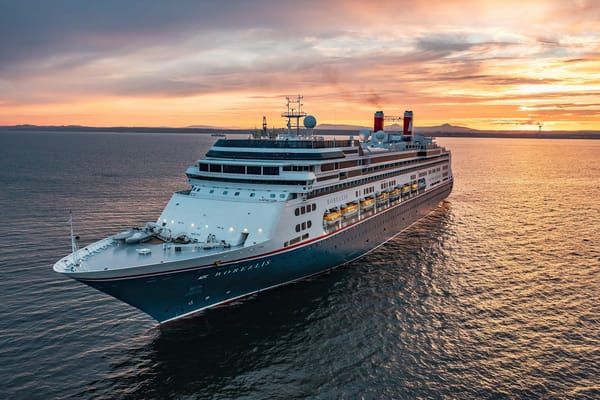Cruise ships have morgues for onboard deaths

Cruise ship vacations are often synonymous with relaxation and leisure, featuring amenities designed to enhance the travel experience. However, cruise lines are also prepared for unforeseen circumstances, including the death of a passenger while aboard. This scenario raises important questions about how cruise ships manage such unfortunate events and the facilities they have in place for this purpose.
Understanding Cruise Ship Morgues
Most cruise ships, given their capacity and demographic, have morgues on board to address the possibility of deaths at sea. Maritime attorney Michael Winkleman states that these ships can be likened to floating cities predominantly filled with elderly passengers, making them equipped with specific facilities for handling deaths.
What Facilities are Available?
Onboard morgues are typically located on the lowest deck of the vessel. These refrigerated, stainless steel rooms can accommodate between two and ten bodies. They serve as temporary places to store remains until appropriate arrangements can be made for disembarkation.
Cruise ships are required to follow strict protocols when death occurs during a voyage. Ships bound for U.S. ports must report the death to the Centers for Disease Control and Prevention (CDC) port health stations immediately upon arrival. This is in line with regulations designed to maintain public health and safety.
Reporting Requirements and Legal Obligations
In addition to notifying the CDC, cruise lines must also comply with the U.S. Cruise Vessel Security and Safety Act of 2010. This act mandates reporting missing persons, suspicious deaths, and homicides to the Federal Bureau of Investigation (FBI), as well as other criminal activities. The Cruise Lines International Association (CLIA) extends these reporting mandates to its member lines, irrespective of where they operate.
Who Makes the Decisions?
Once a death occurs, ship personnel assist surviving companions with arrangements. This includes operations for disembarkation, which can vary depending on local laws. The assistance offered is geared towards supporting families during a difficult time.
Practically, bodies are most often offloaded at the cruise’s homeport. However, there are instances where remains might be transferred at other ports, if permissible by local regulations. This flexibility is vital as the ship moves through various territorial waters.
Financial Responsibilities Related to Death at Sea
One vital aspect of handling a death on a cruise ship involves financial responsibility. According to Winkleman, cruise lines do not legally bear the costs associated with a passenger’s death unless there is proof of negligence on their part. Therefore, the financial burden typically falls upon the deceased's family or travel companions.
The Role of Travel Insurance
Travel insurance can offer coverage for expenses related to the return of remains. Meghan Walch, an insurance expert, explains that policies often provide provisions for costs associated with repatriation, validating the need to understand insurance coverage prior to embarking on a journey.
Additionally, travel insurance may cover expenses related to documentation needed to transfer a body, which could include autopsy reports or police documents, as well as burial costs if arrangements are made in the country where the death occurred.
Emotional and Logistical Challenges
The emotional toll on families experiencing a death while on vacation is profound. Aside from the grief, the logistical aspects of managing the situation can be overwhelming. Travel companions are often the immediate contacts for authorities and may face additional pressure as arrangements need to be made quickly.
Importance of Preparedness
To mitigate uncertainty, travelers are encouraged to understand the ramifications of their travel insurance before heading out. It's advisable to keep emergency assistance contact information readily available and appoint a person who is capable of handling communications on behalf of the deceased if necessary.
Amid these serious considerations, it’s important to remember that cruise vacations are statistically one of the safest forms of travel available. Cruise lines remain focused on ensuring the safety and wellbeing of their passengers as their top priority.
The Bottom Line
Understanding the existence of morgues on cruise ships reveals a crucial aspect of maritime operations and the intricate protocols in place for handling deaths at sea. While cruise lines maintain a focus on ensuring enjoyable holidays, adequate provisions and requirements exist for unexpected scenarios.
Ultimately, few travelers consider the implications of a death at sea, but knowing the protocols can help prepare individuals and families. Knowledge of the facilities on board, as well as the associated responsibilities can certainly ease some of the complexities involved in such tragic events.
Conclusion
In closing, while the thought of death aboard a cruise ship can be unsettling, it's essential to recognize the measures in place that ensure the situation is managed with sensitivity and respect. Whether planning a cruise for relaxation or exploration, being aware of these factors enhances understanding and preparedness for all possible scenarios.
FAQs
Do all cruise ships have morgues on board?
Yes, most cruise ships are equipped with morgues to accommodate the possibility of deaths occurring during the voyage.
What happens if someone dies on a cruise ship?
The crew is trained to handle such incidents, ensuring that the deceased is stored in the morgue while reporting the situation to relevant health and law enforcement authorities.
Who pays for the expenses related to death at sea?
The family or traveling companions of the deceased are typically responsible for all expenses associated with the transportation of remains.
Does travel insurance cover death-related expenses on a cruise?
Many travel insurance policies include provisions for costs associated with the repatriation of remains, but travelers should verify their specific coverage.
What should travelers do to prepare for a potential death at sea?
It is advisable for travelers to thoroughly review their travel insurance, keep emergency contact information handy, and appoint someone to handle communications in such situations.




